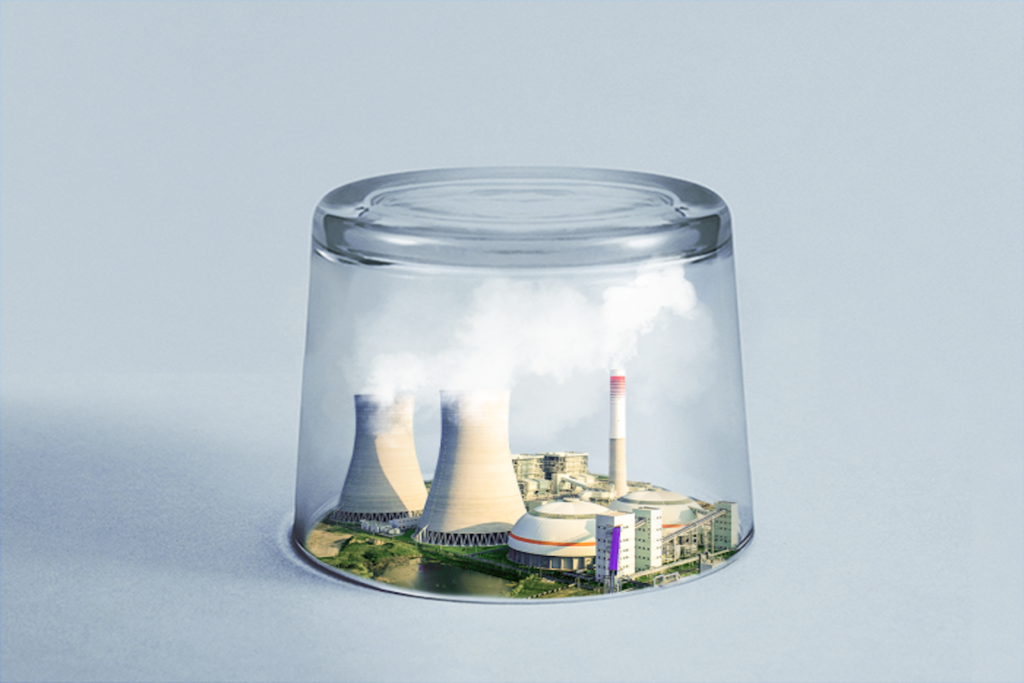A new report by the US’ Government Accountability Office found that all of the country’s eight clean-coal projects that had received funding from the Dept. of Energy (DOE) after the 2008 financial crisis had ceased operations. The report says that three of the projects never got off the ground as despite millions of dollars in funding, their economics could not be justified. The DOE also ended its support to the four other projects even before construction, and the last one — the Petra Nova plant in Texas — failed to compete against falling oil prices and was shut down in 2020.
In terms of the funding, the report stated that a total of $5billion was spent on carbon capture and storage, but it has called out the fact that the US is still supporting CCS projects in spite of the dismal results.
India: Delhi High Court refuses to let Tata Power exit PPA with NTPC’s Dadri coal plant
The Delhi High Court ruled against Tata Power (TPDDL) in its petition that NTPC not be allowed to bill TPDDL for any power output from the Dadri-I power plant in Uttar Pradesh beyond Nov 30, 2020. The petition was filed on the grounds that the plant had served its useful life of 25 years, and so TPDDL was free to exit its power purchase agreement with NTPC under the CEA’s guidelines. However, the petition was dismissed — without any possibility of relief — as the guidelines state that the exit has to be mutually agreed to by both parties, and NTPC had also submitted that the Ministry of Power had extended the useful life of its plants to 40 years.
China hits record coal output in 2021
China’s coal output jumped by 4.7% over 2020 to hit an all-time high output of 4.07 billion tonnes in 2021, as the country doubled down on its coal mines to see it through the winter season, and to avoid a repeat of the fuel’s shortage in September last year that lead to crippling power shortages. In fact, the country mined so much coal in 2021 that on Jan 21, 2022, its utilities’ coal stockpiles stood at 40 million tonnes higher than the volume in Jan 2020, and the mining spree comes despite the country — along with India — having at least committed to phasing down coal power.
UAE suggests oil and gas drillers be included in climate discussions
The head of the UAE’s Ministry of Industry and Advanced Technology was quoted as saying that the COP climate discussions in 2023 “should include inputs from the experts and professionals of the oil and gas industry”, as the country gets ready to host COP28 next year. The comment was justified on the premise that the world simply could not switch to zero carbon energy overnight, and that consultations with the oil and gas industry were needed for “economic systems work more efficiently with much less carbon”. Curiously, the UAE is aiming to achieve net-zero emissions by 2050, even though it will boost its oil output to 5 million barrels per day (bpd) by 2030 from the 4 million bpd today.
UK: Court rejects appeal against North Sea oil and gas, drillers to announce record profits
The UK’s high court rejected an appeal against subsidising oil and gas operations in the North Sea through tax incentives, as it ruled that the state-owned Oil and Gas Authority (OGA) had the responsibility to target maximum economic recovery (MER) from the basin. The appeal was filed by three climate campaigners, who argued that UK’s failure to regulate tax breaks for drillers in the North Sea was entirely incompatible with the nation’s net-zero target by 2050. However, given the OGA’s economic mandate, the judge ruled that taxpayer money could be used to fund its operations.
Also, owing to steadily rising gas prices and demand for the fuel in mainland Europe, North Sea oil and gas firms are likely to report record high profits for 2021. Additionally, the drillers have together rallied against any imposition of windfall taxes on their profits. The move was called for partly by the UK’s Liberal Democrats, who want to raise funds for the poorer sections of the country, but the drillers have countered by saying that additional taxes would only hamper their efforts to invest more in clean energy.
About The Author
You may also like
MCL to invest ₹40,000 crore to set up 4GW thermal power plant
Converting Coal Mines to Solar Can Add up to 15% of Global Capacity: Report
Global North Countries Responsible for 70% of Oil and Gas Expansion: Report
Can biochar be India’s missing link to carbon capture?
India’s swelling coal stockpiles test state-owned mining giant CIL


